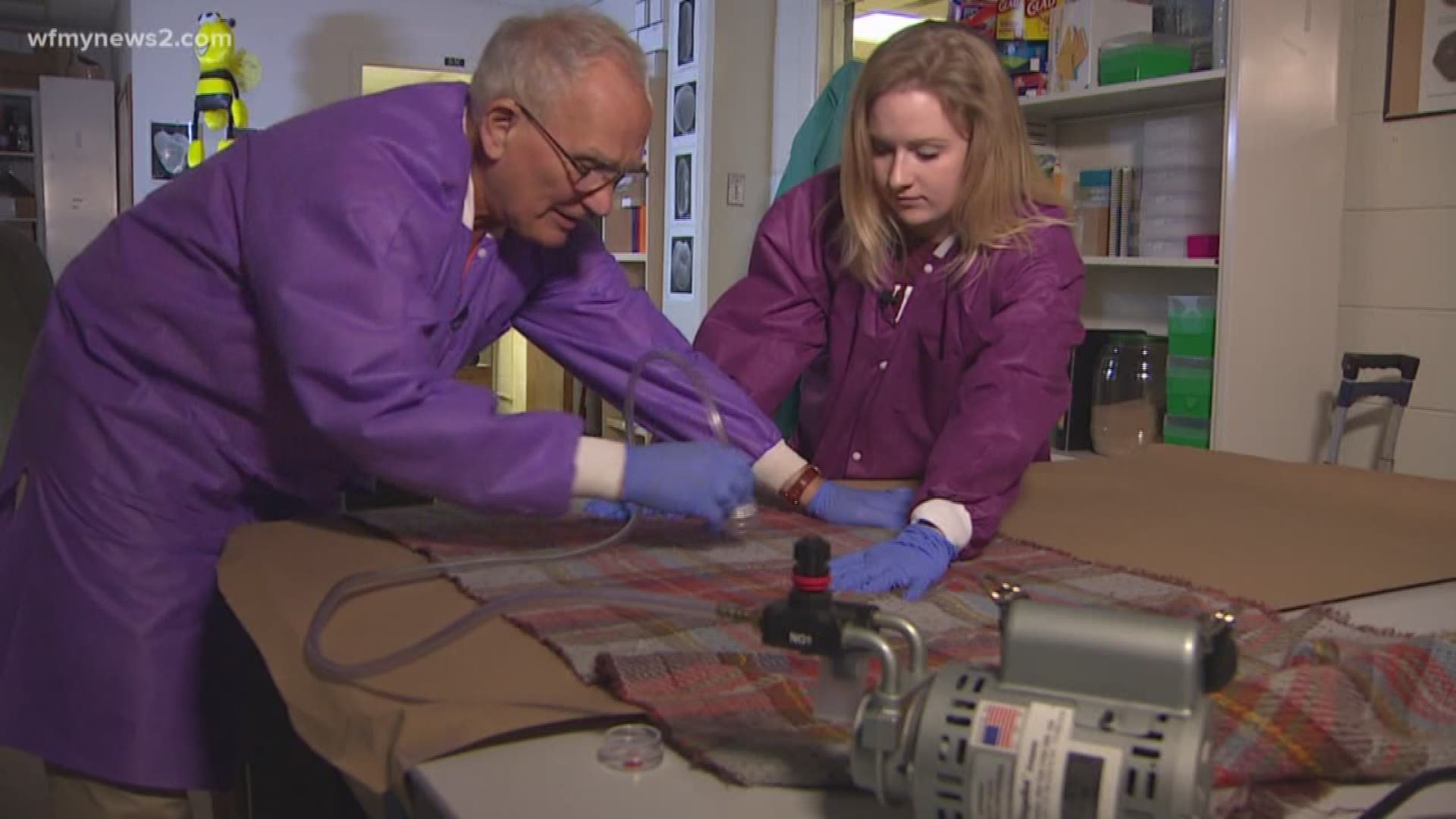Some of the biggest cases in the country are solved with the help of technology a Texas A&M professor pioneered.
As part of our Missing Pieces series, KHOU 11 features cold cases and now we're taking a look at how some are getting solved.
Chilling murder cases, missing kids and chasing terrorists are all cases that take determination.
Inside a forensics lab at Texas A&M, is an unlikely detective with a sense of humor.
"I like to play I'm Sherlock Holmes," said Dr. Vaughn M. Bryant, a professor at Texas A&M.
For almost half a century, Bryant's been profiling pollen.
"Essentially, what we try to do is try to pinpoint where things come from or where people have been," he said.
When most of us think about pollen, we think of trees, plants and allergies but it doesn't stop there. Pollen travels indoors too, on our clothes, making it almost like a fingerprint investigators can pick up on a crime scene.
Under a microscope, the grains will point back to where they're from, a specific part of the world. In one case, it led investigators back to Boston and helped solve the disappearance of a little girl.
In 2015, investigators found her dumped in a garbage bag in the Boston harbor.
Dr. Bryant mentors Andrew Laurence, the only other forensic palynologist in the U.S., who he trained.
Laurence, who now works for U.S. Customs and Border Protection, pinpointed pollen on the girl's clothes to an area near the Arnold Arboretum at Harvard University.
Sure enough, the suspect, the mother's ex-boyfriend, lived within walking distance. Recently, a jury found him guilty.
"I love it, because I love to say I told you so," said Bryant.
"This is a man, whose dedicated to one specific topic, one specific subject, one specialty for 50 years, that's why he's the best," said Mary Katherine Bryant, his granddaughter.
This student may be a little biased.
"The only person I can find who is willing to do this is my granddaughter and I'm very proud of her," said Bryant.
Now, she's training to fill his shoes and they're pretty big. After September 11th, the government called him to help track down terrorists.
"They were trying to find Bin Laden and members of Al Qaeda and so yes I did know that was the primary goal," said Bryant.
Bryant looked at everything from shoelaces, backpacks even pollen samples collected from cellphones and bombs.
However, the sad reality years later.
"Most of the police departments here don't even know about it," said Bryant.
Pollen is not admissible in court, like it is in other countries. With the rise in DNA, Bryant often finds himself defending the golden dust most people still overlook on a crime scene.
"I still think it's going to be important for a number of years and I think it's a good career to get into. There's so few people in it, you don't have much competition," he said.
Bryant is still teaching classes at Texas A&M in the Department of Anthropology.
He often tells his students mother nature has a way of solving life's questions, if only we put in the time and effort to figure it out.
For more information on Dr. Bryant's work, click here.
*Pictures in video courtesy of Dr. Vaughn M. Bryant and U.S. Customs and Border Protection

